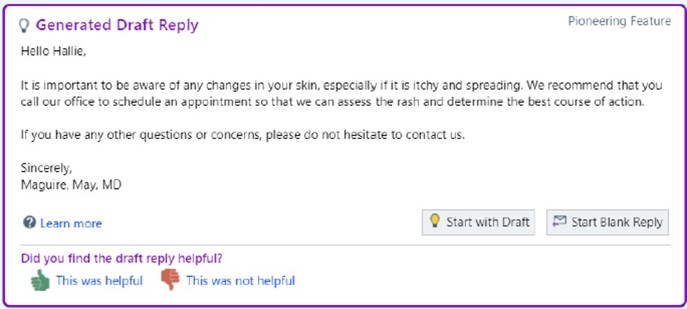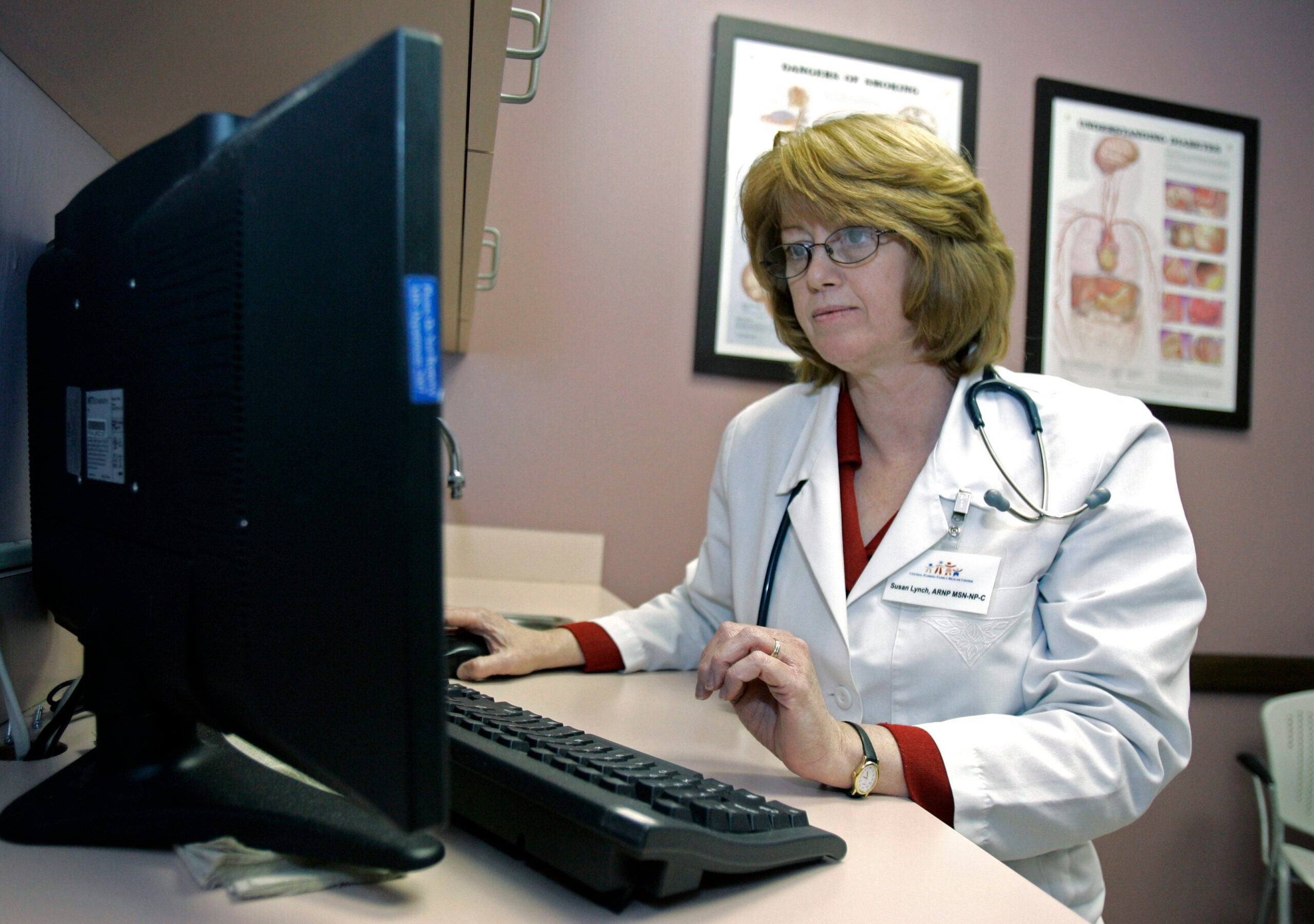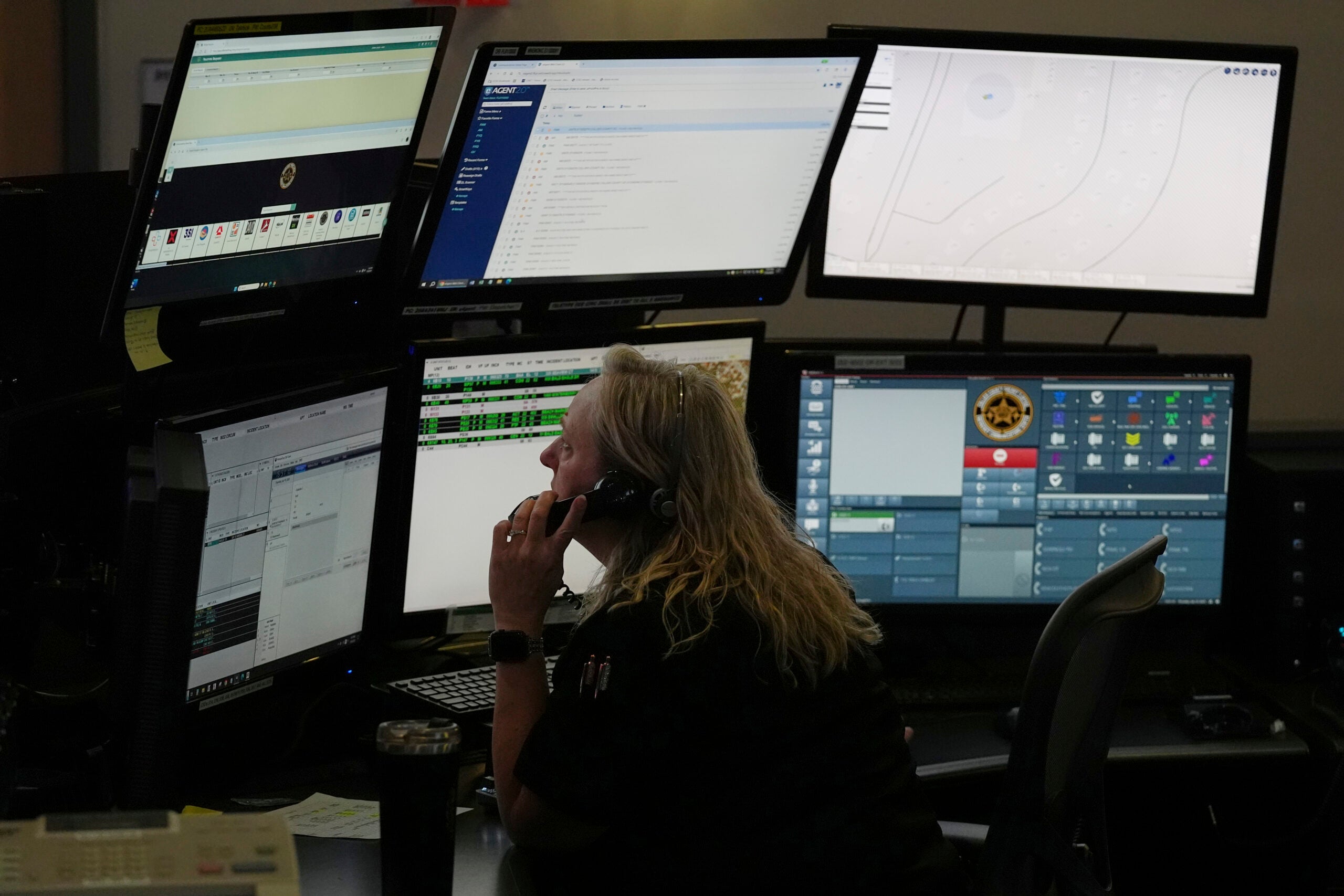As the health care industry continues to struggle with staffing, UW Health is looking to artificial intelligence to help nurses respond to patient messages more efficiently.
More than 75 nurses within the health system are piloting a generative AI tool that drafts a response to patient messages in MyChart, Epic Systems’ electronic health record system. It’s part of a project launched by Epic and Microsoft last spring.
Amanda Weber, an RN clinical supervisor at UW Health, said nurses like herself start by reading the patient’s message and reviewing their chart, before evaluating the generated response.
News with a little more humanity
WPR’s “Wisconsin Today” newsletter keeps you connected to the state you love without feeling overwhelmed. No paywall. No agenda. No corporate filter.
“It kind of sets up that first draft, and then I can go in and make any type of edits,” said Weber, who works in rheumatology. “So I’m able to move quicker through the inbox, and work through all of those messages just because that draft is generated.”
It’s a welcome efficiency, according to Weber, because nurses spend a large part of their day responding to messages and phone calls from patients. She said these questions relate to everything from an upcoming appointment to medications to new symptoms.

Health care industry leaders estimate there are thousands of unfilled hospital jobs across the state, caused by a spike in staff turnover during the COVID-19 pandemic and increasing retirements.
Rudy Jackson, chief nurse executive at UW Health, said decreasing the administrative work of nurses and other staff through AI and other technology could help.
“As we think about the total number of nurses we have in the country, and we think about the increasing demands, the math just doesn’t add up with that,” Jackson said. “In order for us to better support our nurses, and ultimately better support our patients, we have got to leverage technology.”
Jackson said patient messaging is only one application, suggesting that AI could help spread patient workload more equally across staff or generate reports at the end of a shift to improve the handover of care. He said embracing new technology is nothing new for the industry, pointing to tools like dictation systems that doctors have used for nearly 30 years.
“Artificial intelligence is not a completely brand new novel concept around what we do. It’s just the latest iteration of work,” he said.
The development of AI tools has also faced criticism, including in health care. Last fall, President Joe Biden signed an executive order to “advance and govern the development and use of AI” and called on health systems across the country to commit to guidelines around transparency and reducing risks.
A UW Health spokesperson said there is not a label on AI-assisted messages in their system because they are reviewed, edited and sent by nursing staff.
Weber said in her department, only experienced nurses have access to the tool as a way to make sure staff have the knowledge to properly evaluate the AI-generated responses. She said there are instances when she discards a draft altogether.
“We just wouldn’t want to sway any clinical decision making,” she said. “We want them to have a really good foundation first before they can start utilizing this.”
As more AI tools are developed, Weber says she appreciates being able to test out the technology in real life. Staff participating in the pilot at UW Health can send feedback to the developers, letting them know what types of responses are working well and what needs improvement.
Wisconsin Public Radio, © Copyright 2025, Board of Regents of the University of Wisconsin System and Wisconsin Educational Communications Board.







